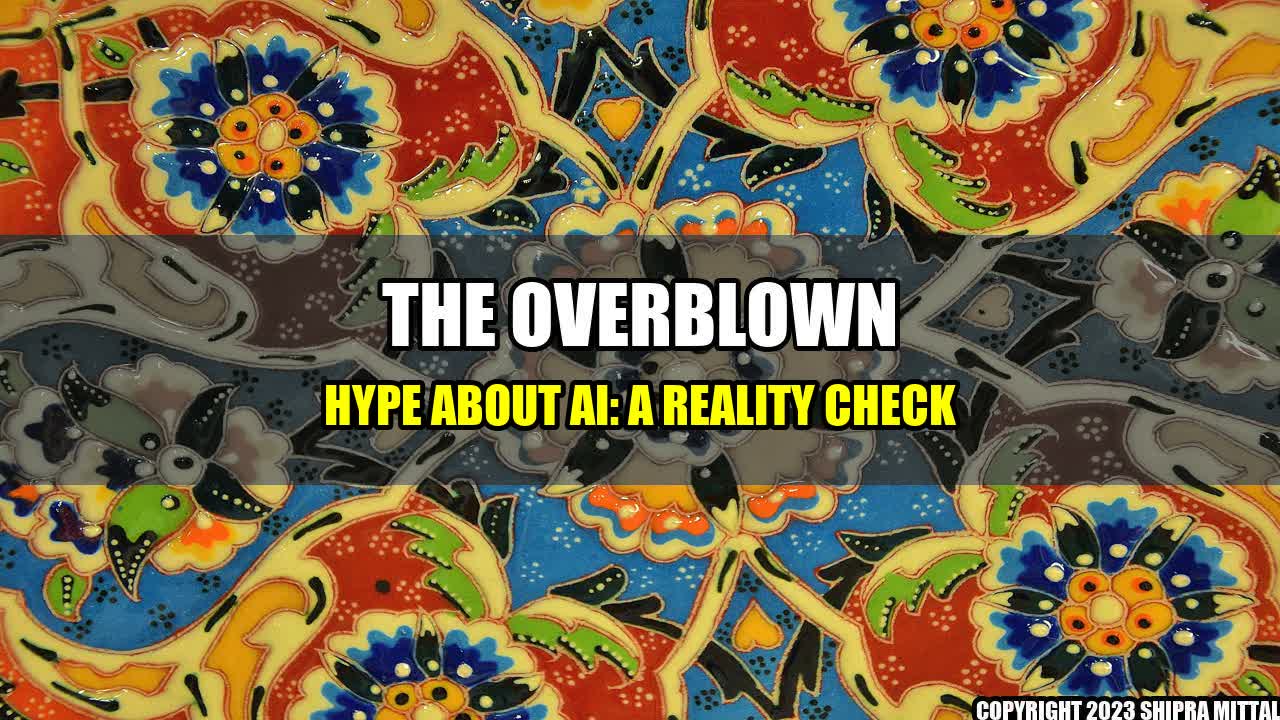
Once upon a time, there was a tech industry that made big promises. AI was going to change everything, from the way we work to the way we live our lives. But the hype around AI is beginning to wear off, as people realize that the technology hasn't delivered on its promises.
It's true that AI has made some impressive advances in recent years. We now have machines that can beat humans at complex games like Chess and Go, and algorithms that can predict our shopping habits, social media behavior, and more. But the reality is that AI still has significant limitations, and there are many areas where it falls short.
One of the main problems with AI is its lack of precision and accuracy. AI algorithms are only as good as the data they're trained on, and they can only make predictions based on the patterns they've learned from that data. This means that AI is prone to making mistakes, and its accuracy can vary significantly depending on the type of data it's been fed.
For example, a study by Stanford University found that the leading AI systems used in healthcare were only able to diagnose pneumonia with an accuracy of 92%, which is far from perfect. Another study by Wired showed that some AI systems are not able to read and interpret books at the same level as humans, despite being trained on vast amounts of text data.
Another problem with AI is that it's notoriously hard to measure its performance in a way that's meaningful to humans. For example, if an AI system predicts that a user is going to like a particular product, how do we measure whether that prediction is accurate or not? There's no straightforward answer to this question, and it's one reason why AI is often criticized for being too ambiguous and subjective.
Another issue with AI is that it has its limits. Despite the hype around AI being able to automate everything, there are many tasks that it's still not capable of doing well. For example, AI is not good at tasks that require intuition, empathy, or creativity, all of which are crucial skills in many industries.
Even tasks that seem straightforward for humans, like recognizing faces, can be challenging for AI. A study by MIT found that leading AI systems are only able to recognize faces with an accuracy of around 96%, which is far from perfect. This can have serious consequences in areas like law enforcement, where false positives can lead to wrongful arrests.
AI also struggles with tasks that require context and understanding of the world. For example, it's difficult for an AI system to understand the nuance and complexity of human language and translate it accurately into another language. This is why human translators are still in high demand.
Despite its limitations, AI is still making an impact in many industries. Here are a few examples:
However, the impact of AI on industries is not always positive. For example, there are concerns that AI could lead to widespread job loss, as machines replace humans in many industries. There's also the issue of bias, as AI systems can perpetuate existing inequalities if they're not designed and trained properly.
Finally, there's the issue of trust. AI systems are often seen as black boxes, meaning that humans don't always understand how they're making decisions. This can lead to a lack of trust in AI systems, which can be a significant barrier to their adoption.
So, what's the reality of AI? It's a technology that has made significant advances in recent years, but one that still has significant limitations. AI is not a silver bullet that can solve all of our problems, but rather a tool that needs to be used in the right way for the right tasks.
Here are three key takeaways:
Ultimately, we need to take a more measured approach to AI, one that acknowledges its limitations and focuses on using it in combination with human expertise to tackle complex challenges. By doing so, we can unlock the potential of AI without succumbing to the hype.
#AIrealitycheck #AIfacts #AIdebunked #AIgetreal
Curated by Team Akash.Mittal.Blog
Share on Twitter Share on LinkedIn